☆ PuniPuni Youtube ☆
Japanese Grammar Lesson 2: Asking yes/no questions – Review Notes
Today we learned how to make a yes/no question out of a statement, and how to answer yes or no to these questions. If you don’t know how to make a statement in Japanese yet, you might want to watch the first grammar lesson before this one!
………………………………………………………………………………..
Making a question out of a statement:

★ Today we learned how to make a yes or no question from a statement.
★ Last time we learned the basic sentence pattern A は B です (A wa B desu), or A is B. If you can make a sentence, then you can easily make a question!
★ If you have a statement, there is only one more step to make a question. Just add “ka” to the end!
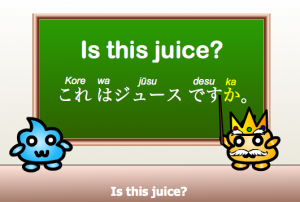
…………………………………………………………………………………
Answering “yes”:
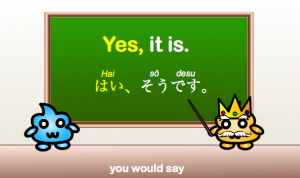
★ We also learned how to answer a question positively using “hai, sō desu.”
★ “Hai” means “yes” and “sō desu” means “it is so.” Alternatively, you could use either “hai” or “sō desu” by itself for the same purpose.
★ A more casual way to say “yes” in Japanese is “un.”
…………………………………………………………………………………
Answering “no”:

★ We also learned how to answer a question negatively using “iie, chigaimasu.”
★ “iie” means “no.” Literally, “chigaimasu” means “different,” but it can be translated as “it isn’t” or “it’s something else.” Alternatively you can use either “iie” or “chigaimasu” by themselves for the same purpose.
★ A more casual way to say “no” in Japanese is “uun.”
★ Just like English, it is sometimes more natural to answer with a correction of what they are wrong about. For instance if you are Canadian and someone asks you:
アメリカ人ですか。
Amerikajin desu ka?
Are you American?
Rather than saying simply “no, I’m not” or “iie, chigaimasu,” it might sound more friendly to respond with:
いいえ、カナダ人です。
iie, kanadajin desu.
No, I am Canadian.
Of course, you can do the same thing for the juice example. For example, if someone asks you if it is juice, but it is actually soda, you can say:
いいえ、ソーダです。
iie, sōda desu.
No, it is soda.
…………………………………………………………………………………
Example Question 1:
お姉さんは高校生ですか。
Oneesan wa kōkōsei desu ka?
Is your sister a high school student?
Example Answer 1:
いいえ、中学生です。
iie, chūgakusei desu.
No, she is a junior high school student.
………………………………………………………………………………..
Example Question 2:
あなたは医者ですか。
Anata wa isha desu ka?
Are you a doctor?
Example Answer 2:
いいえ、看護師です。
iie, kangoshi desu.
No, I’m a nurse.
………………………………………………………………………………..
Conclusion:
Today we learned how to make a question out of a statement by adding “ka” to the end of the sentence. We also learned how to answer “yes” or “no” to a question.
You may have noticed that many examples do seem to be missing the topic such as “anata” (you) or “kanojo” (she). Japanese often leaves out the topic when it is obvious to the listener.
If you have any yes/no questions, try leaving one in Japanese in the comment section below!
………………………………………………………………………………..
Get Japanese dictionary!
Do you want to know a lot of Japanese words? I recommend you to get a dictionary!
If you have dictionary, you can always look up new Japanese words\(◕ω◕)/♥
………………………………………………………………………………..
Do you want a Japanese tutor?
Take Japanese Skype Lessons with Professional Japanese Teachers on kakehashijapan.com!
………………………………………………………………………………..
………………………………………………………………………………..



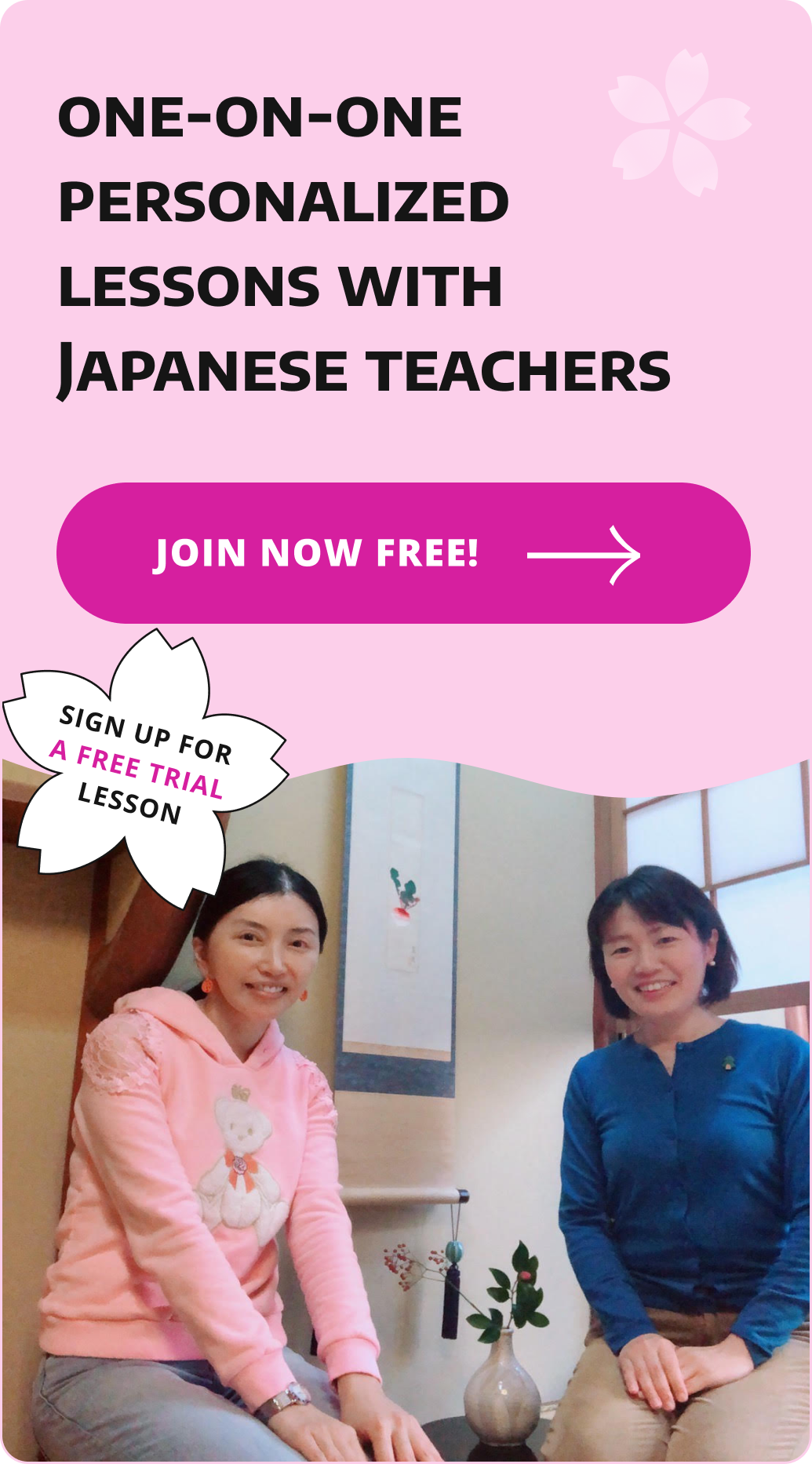






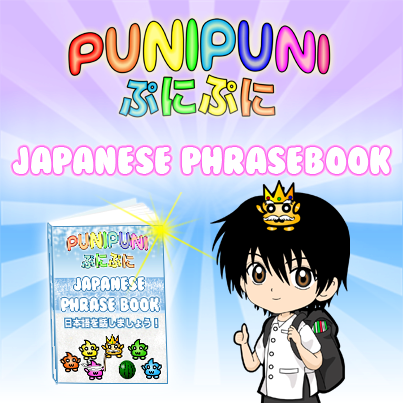

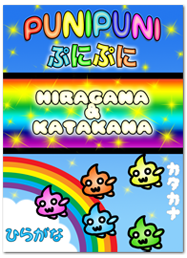
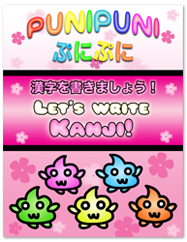
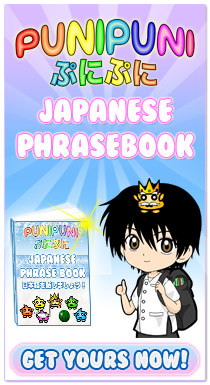

14 comments
I have two quick questions, how do you tell the difference between un and uun? I have the phrase book and listened to the sound files, but they sound really similar… and what is this? ー I know what all the hiragana symbols mean, but I don’t understand what that symbol is.. is it katakana?
Comment by MewQueen on 02/03/2013 at 7:19 pmThey do sound very similar, but uun is a little longer and the intonation is different. Keep listening and try to see if you can hear the difference. The symbol ー extends the vowel sound. It is usually used for katakana, but it can be used with hiragana sometimes too. For example, in the word ピーマン (pīman/piiman – green pepper) the ‘i’ sound is elongated by the use of this symbol.
Comment by PuniPuni on 02/03/2013 at 8:23 pmHow would you say yes,i am.
Comment by じえ-ど (Jade) on 10/25/2013 at 8:36 amI’ve currently wrote down a question,
あなたはだいがくせいですか。
Which means are you a college student?
I so far have wrote the answer はい 。
I would like to say yes,I am in japanese, how would
I write that? 🙂 ありがとう!
I’m not quite sure if I understood what you want to say. Do you want to say “Yes, I am taking a Japanese class at college”? If so, you can say はい、私は大学で日本語のクラスをとっています。(Hai, watashi wa daigaku de nihongo no kurasu o totteimasu. I hope that helps! \(◕ω◕)/♡
Comment by PuniPuni on 10/25/2013 at 9:05 amこんにちわ!
Comment by じえ-ど (Jade) on 10/25/2013 at 11:51 amいいえ。。。
I meant how do you say ‘yes,I am.’
I am currently learning only ひりがな (Hirigana) ^_^
I am using the study method of learning Hirigana first then katakana,then
Kanji.
I do use 私 though because it’s quicker to write ^o^.
Ooh I see. Sorry! (>ω<)♥ You can just say: はい、そうです。(literally, "yes, it is so")
Comment by PuniPuni on 10/26/2013 at 8:20 pmI have seen in some places where it says “そうですね” which translates to “That’s right/It is so” but I don’t understand why is the “ね” attached to the end, since in your lesson you only write “そうです” without the “ね” at the end. Are they both correct? Why does it have that ending?
Comment by marta on 04/14/2014 at 10:37 amThey are both correct sentences, but the meaning is a little different. そうです is a clear statement meaning “yes,” “that’s right,” or “it is so.” そうですね has several different uses (depending on the situation and tone of voice the nuance can change a little bit) but basically adding the particle ね to the end of the sentence makes it sound more passive, like you are saying “yes, don’t you think so too?”
For more information, please check out our lesson about the sentence ending particle ね: http://www.punipunijapan.com/japanese-particles-yo-ne/
Comment by PuniPuni on 04/18/2014 at 9:47 amこんにちは、ぷにぷにさん。 ^ ^
私は、日本語を勉強しています。 だから、まだ日本語ものが分かりません。 / I am studying Japanese. Therefore, there are still many stuff in Japanese I do not know.
質問してもいいですか? / May I ask a question?
(I will just use English for the question because it is still a bit difficult for me to write in Japanese. ^ ^;)
I have noticed a lot that there are many Japanese interrogative sentence that doesn’t have the question (?) mark. For instance, “何をしますか。 ”
My question is, is it indeed required in Japanese to leave out the question mark? I’ve seen some native Japanese writing the said sentence with question mark, though. I just want it to be clear. ^ ^
Also, I’ve noticed that there are some certain statements that don’t need the particle か to make it interrogative. For example, a waiter asking the customer what they would like for drink, “飲みものは?”
My question is, is the sentence just a shortened form of “飲みものは何ですか?” or it is indeed some special form of sentence in Japanese? If so, then in what other situation can we use that form?
I’m sorry if I ask too much. ><
Right now I’m really into Japanese language and now trying to memorize Kanji as many as possible. My target/goal is when I’m able to read an article written in Japanese newspaper.
宜しくお願いします。 ^ ^
Comment by リズキ on 05/16/2014 at 10:31 pmThe question mark is used most commonly in casual writing. When you use formal Japanese (with a question ending in 〜ますか or ですか) you don’t need a question mark. However, when using casual Japanese, you don’t use the question particle か. When speaking, you can tell by intonation that it is a question. However, in writing, you can’t hear the intonation, so using a question mark for casual questions becomes vital. For example, そうなの。and そうなの? The first one is a statement, like “Yes.” The second one is a question like “Really?” Since you can’t hear the intonation in writing, you should use a question mark for casual questions.
It is very common to hear statements that cut off halfway like: 飲みものは?
Comment by PuniPuni on 05/23/2014 at 8:29 pmIt is just an abbreviated sentence. Japanese people like to make speech shorter (>ω<)♪ It's great that you are excited to learn Japanese! 日本語の勉強がんばってね!
how do you say yes i think so would it be hai to omoimasu.
Comment by Alex on 06/02/2014 at 6:56 pmはい、そうだと思います。(hai, sō da to omoimasu) – “Yes, I think so.”
Comment by PuniPuni on 06/06/2014 at 10:31 amHow do I say “I’m twenty four years old? 私は二十四です? Help!
Comment by Mafe on 01/09/2015 at 2:12 amYou can say 私は二十四歳です。(watashi wa nijuuyon-sai desu)
Comment by PuniPuni on 01/27/2015 at 5:58 am歳 (sai) is used to count age (years old).